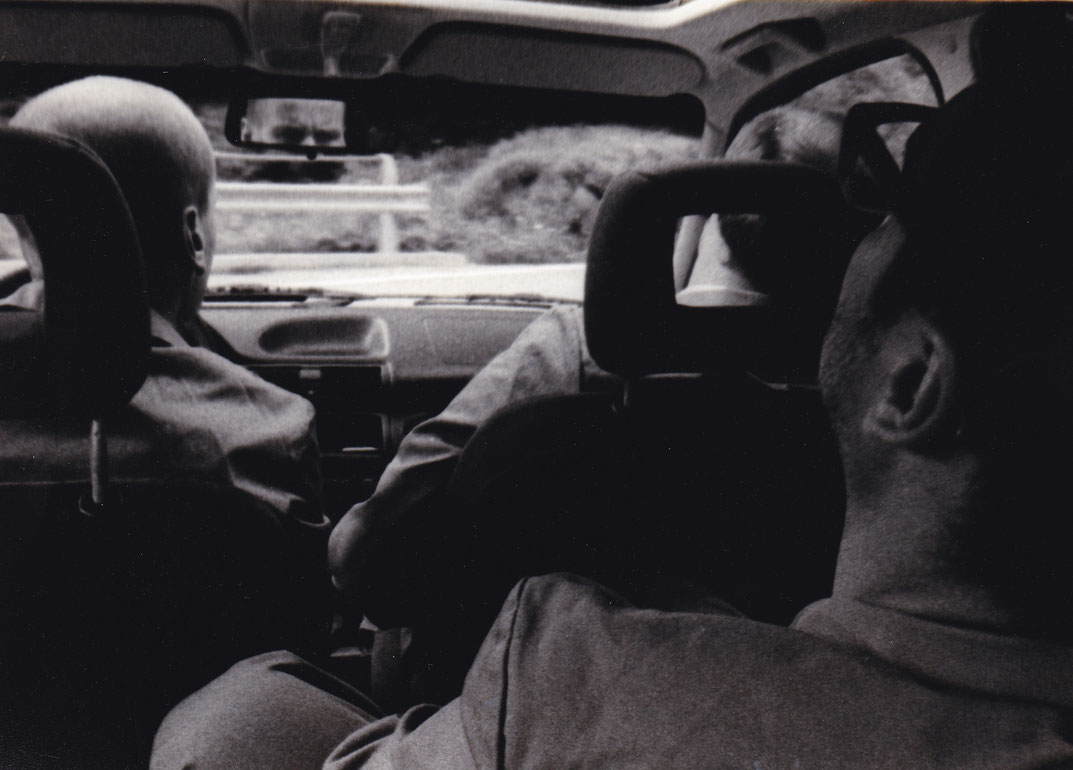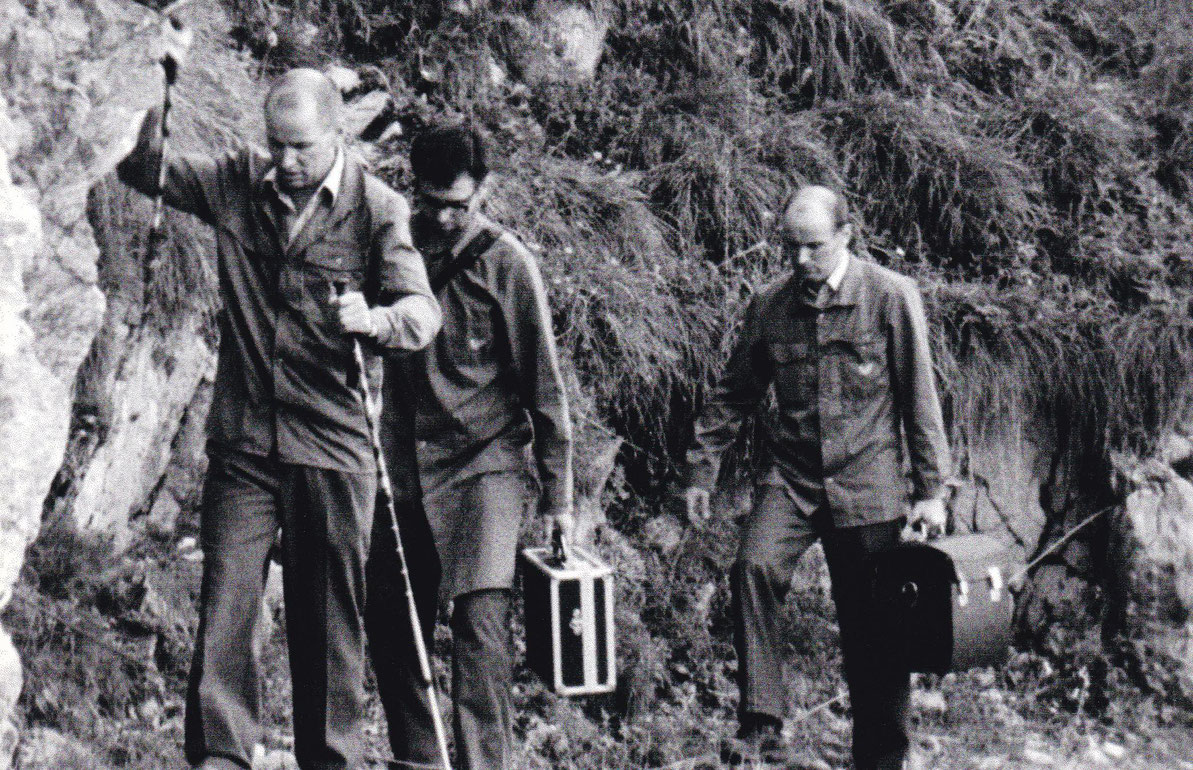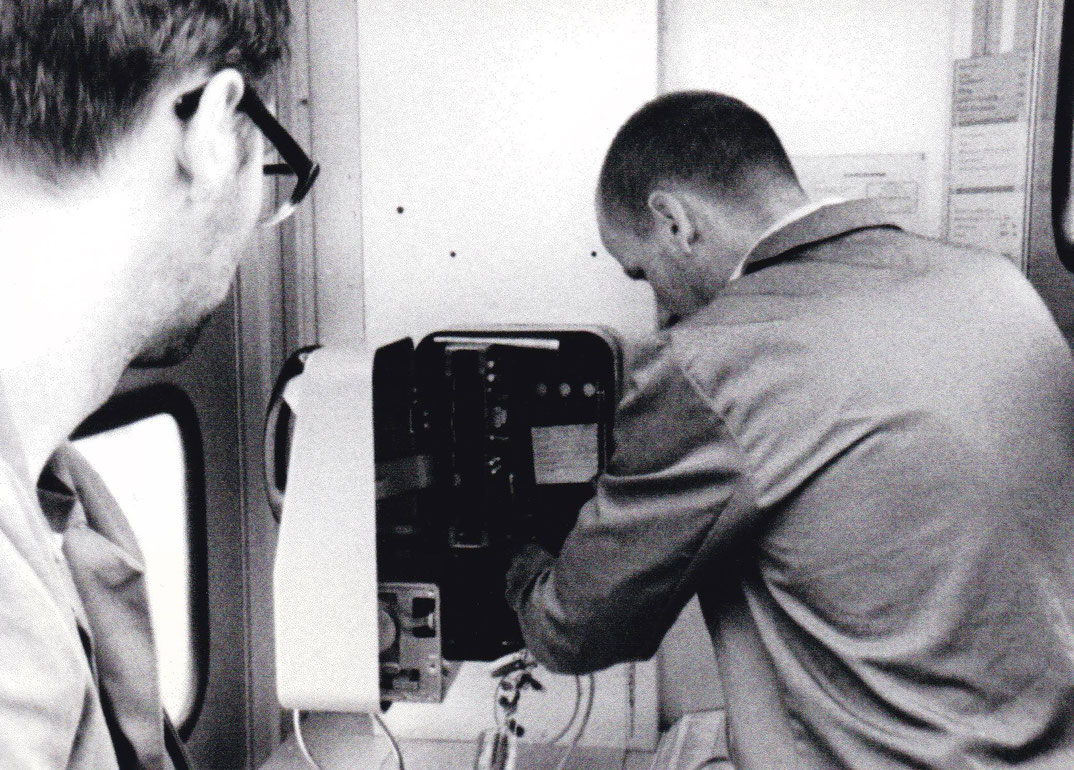Timau
Three partially uniformed men in a car driving up a mountainous road. Having arrived at a parking place, they unload their heavy cases. They set off up a narrow mountain track between bushes and boulders. Ropes appear - a safety measure, and shortly thereafter the climb takes them into a dark, narrow and wet tunnel in a cliff. There, feeling their way forward and groaning they go up and down in a never-ending rocky gorge accompanied by the threatening sound of falling stones. It should be said that here the framework and conditions (which are difficult to make out), distort towards the grotesque. After this intended exaggeration they do manage to escape into the open air and events immediately take a conventional turn - the men arrive at a mountain lodge complex where they begin servicing a long-distance telephone box situated there. (Dabernig/Scherer) To some extent Dabernig / Scherer identify with one of their protagonists who, in spite of a physical handicap, does not allow anyone to help him on the steep climb which is, in addition, exceptional and, one could say, strangely old fashioned operation. But, just as this Post Office employee never loses his countenance as chauffeur or later as hiker, the film makers never slip into the trap of simple pleasantries. This is not a visual joke, although it always threatens to tip over and neither is it a culturally pessimistic contribution to current communications and globalisation traps. What is most arresting in Timau, as in the case of Dabernig´s "Wisla" is the art of the moment. Normally the deeply private loneliness of the opening car journey would be at the end of a great melodrama (well, OK it could also be a small melodrama). And with the almost ethnographic postcard view of the mountain farm couple who, at the end, sign the service order, Dabernig proves once again his talent for silent film comedy. (Claus Philipp) Timau is a 20-minute, black-and-white, tripartite vignette, which has been called a “worker´s melodrama.” The entire film, like all of Dabernig´s, relies on a revelation-concealment structure. As the three sleepy passengers drive through a beautiful, but treacherous, mountainous landscape, we hear the distinctive but undetermined sounds of the car radio and see wondrous ruins from a distant era. Driving through tunnels, the passengers are alternatively obscured by darkness and obliterated by sunshine, this chiaroscuro peek-a-boo exchange acting as dramatic high point to the film´s uncertain storyline. Finally, they park next to a rock face displaying a chalk-drawn outline of a football goal. (Andréa Picard) --> TIMAU
Timau
1998
Austria
20 min



